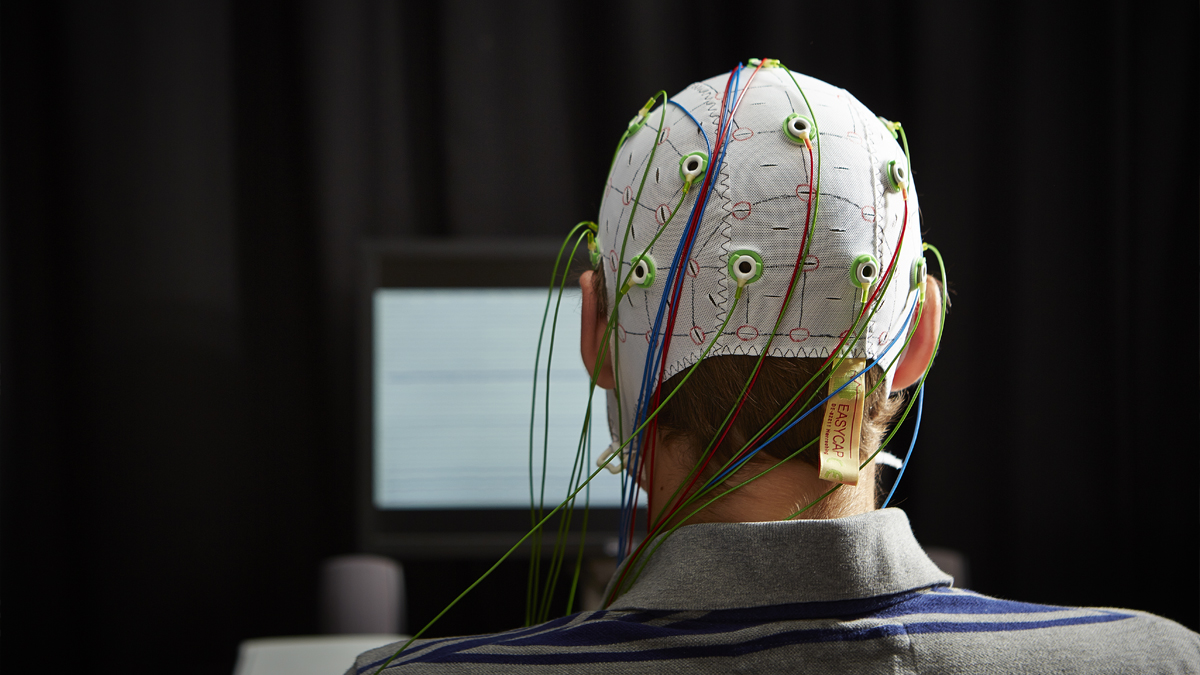Our research integrates with health services and industry. We host several NHS clinics in the School, and staff work with a wide range of industrial partners.
Find out more about our research facilities, clinics and centres

Our research integrates with health services and industry. We host several NHS clinics in the School, and staff work with a wide range of industrial partners.
Find out more about our research facilities, clinics and centres
Our research is focused on three complementary themes.
We have internationally recognised strengths in the development of emotion regulation and psychopathology, treatment of psychopathology, and how the brain and body interact in terms of social cognition and emotional behaviour.
With a focus on translational research, we seek to advance understanding of the causes and treatment of depression, anxiety, eating disorders and autism in children and younger adults, as well as neurodegeneration and wellbeing in older adults.
This broad theme focuses on language; learning, memory and forgetting; and perception. An emerging field is the study of motivation, curiosity and behaviour change, with implications for education and policymaking.
Language is a particular strength of this group and we have significant expertise in bilingualism and multilingualism, language impairment, typical and atypical development, and psycholinguistics.
In addition, we have expertise in 3D vision, eye movements and face perception, and we use virtual reality technology to expand our understanding of how vision and touch are brought together in perception.
Researchers examine how a variety of interventions such as cognitive training, brain stimulation, and even chewing gum help us to remember and to forget.
Work within this theme investigates the interplay between our diet and measures of cognitive and mental health, and understanding how social, cognitive, sensory and economic factors interact to influence food choice across the lifespan.
Other research investigates the development of technological aids for supporting people with dementia and Alzheimer’s disease, the use of plant-derived compounds for health, and contributions to building design in relation to distracting background noise and the Internet of Things.

Our School benefits from modern facilities, on-site clinics and connections with local organisations to support staff and postgraduates in their research.
We host talks and workshops from internationally recognised experts such as Noam Chomsky, Daniel Dennett and Elizabeth Loftus.
We believe that cross-disciplinary research can have the highest impact. That’s why we frequently collaborate with colleagues in the Department of Food and Nutritional Sciences, Institute of Education, and the School of Humanities, among others.

From fighting childhood epilepsy to developing new treatments for anxiety - find out more about research within our School and its impact on the world.

Discover how we are making psychological research more transparent, reproducible, collaborative and freely accessible.
